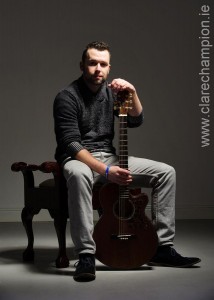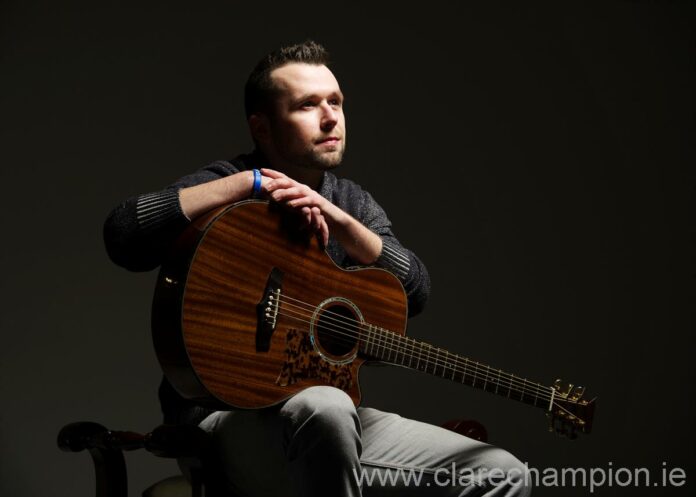Owen Ryan
ENNIS musician Paul Quinn has clocked up hundreds of thousands of views of his arrangements on YouTube and is planning to record some of his own songs this summer.
Recently, he put up his version of the national anthem played on acoustic guitar, which has well over 10,000 views and his versions of the theme tunes from The Wire and Game of Thrones have also racked up big numbers.

Speaking about the views on YouTube, he says, “I started about two years ago and it’s kind of progressively gotten bigger and bigger; it’s up to about 700,000 views now. The Irish National Anthem one was featured on 2FM and that kind of exploded overnight, up to 12,000 or 13,000. I’ve just done ones I’ve liked from movies and TV shows and it got a gradual fan base and I’ll record original material in the summer.”
He got some help when a link to his version of the Game of Thrones theme tune was tweeted by actor Iwan Rheon, who plays Ramsay Bolton on the hit show, while the official Facebook page of The Wire shared his version of its theme tune.
Getting so many views on YouTube wasn’t planned but there was a bit of a snowball effect as time went by.
“The first few I just put up and didn’t even look. After a few months, I took a look and there were a couple of thousand views, so I decided to put up more. It really exploded last year when I put up the Game of Thrones one and the Lord of the Rings ones. They got nearly 300,000 or 400,000 on their own. People subscribe to your channel and they follow you on Facebook, so every action you do they follow and they can share them.”
Are there any copyright issues with playing the theme tunes?
“Not if you’re not making money off it like me,” Paul replies. “You can make money off your own original stuff and songs that don’t have copyright.”
Paul says he uses a style that was pioneered by Chad Atkins and Tommy Emmanuel.
“It would kind of originate from American country, folk more so, but now it’s anything. You can hear any song and make a guitar arrangement out of it. Personally, I was influenced by blues and rock, people like Rory Gallagher and Tommy Emmanuel; all the greats I suppose.”
At the moment he is studying for a masters in music therapy, which he really enjoys.
“It’s a lovely mixture between psychology and music and you see how music can change someone’s life. It’s a therapeutic relationship that forms between the therapist and the client. You can reach whichever goals you aim for through music activity. It could be improvisation, lyric analysis, songwriting, listening to a piece of music. It’s endless really because music is so intangible, you can draw from different areas.”
The field is just getting established in this country. “It’s new in Ireland, it’s more recognised in Canada, Australia, the UK and America. I was in London doing a placement and in Belfast as well and there were different situations. I was with children with developmental difficulties and then neuro-rehabilitation. Others work with people with dementia and there’s youth work and that’s kind of what I’d like to get into, using music as a facilitator to work towards goals.”
He is recording his own material in the summer and says he will be playing music all his life, even if he doesn’t make a career out of it.
“I’ll be doing music for the rest of my life either way. These days in the music industry everyone seems to want their 15 minutes of fame, to be famous for the sake of being famous. I’d rather play what I love and not be famous.”
A native of Ennis, Colin McGann has been editor of The Clare Champion since August 2020. Former editor of The Clare People, he is a journalism and communications graduate of Dublin Institute of Technology.


